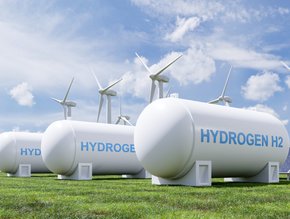International Energy Agency Celebrates 50th Anniversary

A pillar of the energy community is set to hit a huge milestone as it celebrates 50 years since it was established.
The International Energy Agency (IEA) was founded in November 1974 off the back of the 1973 oil crisis, which resulted in physical disruptions to supplies of the fuel globally.
And although founded as a body to ensure oil security, its 50-year tenure has seen its focus shift to involve much more than that. The IEA now plays a vital part in steering the world toward secure and sustainable energy transitions.
The IEA is a significant player in the global energy landscape despite not being a typical or traditional contributor to the wider industry.
The IEA at 50
A key provider of data and statistics on the global oil market and energy sector, the IEA is an intergovernmental organisation which puts out energy policy, information and analysis. As a crucial body in this space, the IEA promotes energy savings and conservation all while fostering technical collaboration on innovation and research between governments and companies worldwide, as well as acting as a key resource when it comes to future energy-related emergencies, much like the one that instigated its creation in the first place.
The IEA was founded by 17 initial members made up of Austria, Belgium, Canada, Denmark, Germany, Ireland, Italy, Japan, Luxembourg, The Netherlands, Norway, Spain, Sweden, Switzerland, Turkey, UK and US. Thirteen nations have joined since, with another five currently going through the process of obtaining full membership.
It operates within the framework of the Organisation for Economic Co-operation and Development (OECD).
The IEA has had seven Executive Directors since its creation and is currently headed up by Turkish economist and energy expert Dr Fatih Birol, who has been in post since 2015.
Birol has made significant changes since assuming the top job, taking a series of steps to modernise the international organisation. Some of the major points in this IEA include strengthening ties with emerging economies like India and China, as well as stepping up work on the clean energy transition and global efforts to reach net zero emissions.
He joined the agency as a junior analyst in 1995 after working for the Organization of the Petroleum Exporting Countries (OPEC), and in the 20 years between the start of his IEA career and becoming Executive Director, worked his way up the ladder, taking on roles such as Chief Economist.
In celebration of the half-century anniversary of the agency's founding, there will be a number of special events at the IEA 2024 Ministerial Meeting on 13 and 14 February — including a series of high-level dialogues and an innovation forum — with more events expected to be announced throughout the year.
A brief history of the IEA
1974 - The IEA established.
1975 - The IEA implements its first emergency measures in response to the second oil crisis.
Late 70s - Emergency response systems to manage disruptions in oil supplies are developed and refined. This enhanced unity and member countries’ collective ability — and responsibility — to address future crises.
1980s - The IEA’s mandate expands beyond just oil security. Energy efficiency, renewable energy and environmental concerns are now incorporated.
1991 - In light of the Cold War and the changing geopolitical landscape of the time, the IEA’s membership expands into Eastern Bloc countries.
2000 - Member countries’ energy policies are reviewed to promote energy security and best practice.
2004 - China and India join the IEA, reflecting their importance to the energy landscape.
2015 - New Executive Director Dr Fatih Birol’s modernisation strategy approved, which set out how to strengthen and broaden the agency’s commitment to energy security beyond oil and to provide a greater focus on clean energy technology.
2020s - The IEA has a clear focus on clean energy, emphasising clean energy transitions, providing analysis and recommendations to guide member countries toward sustainable and low-carbon energy systems.
2021 - The IEA publishes Net Zero by 2050: A Roadmap for the Global Energy Sector and establishes a benchmark for national and international climate goals in line with the Paris Agreement target of limiting global temperature rise to 1.5°C.
*******************
Make sure you check out the latest edition of Energy Digital Magazine and also sign up to our global conference series - Sustainability LIVE 2024.
*******************
Energy Digital is a BizClik brand.






